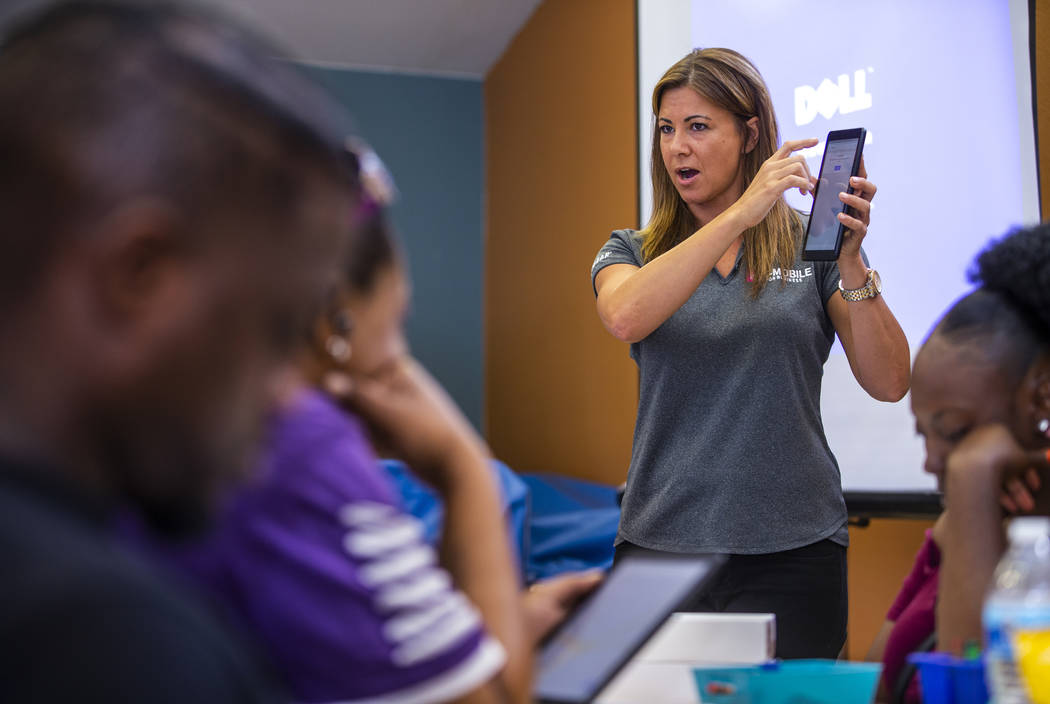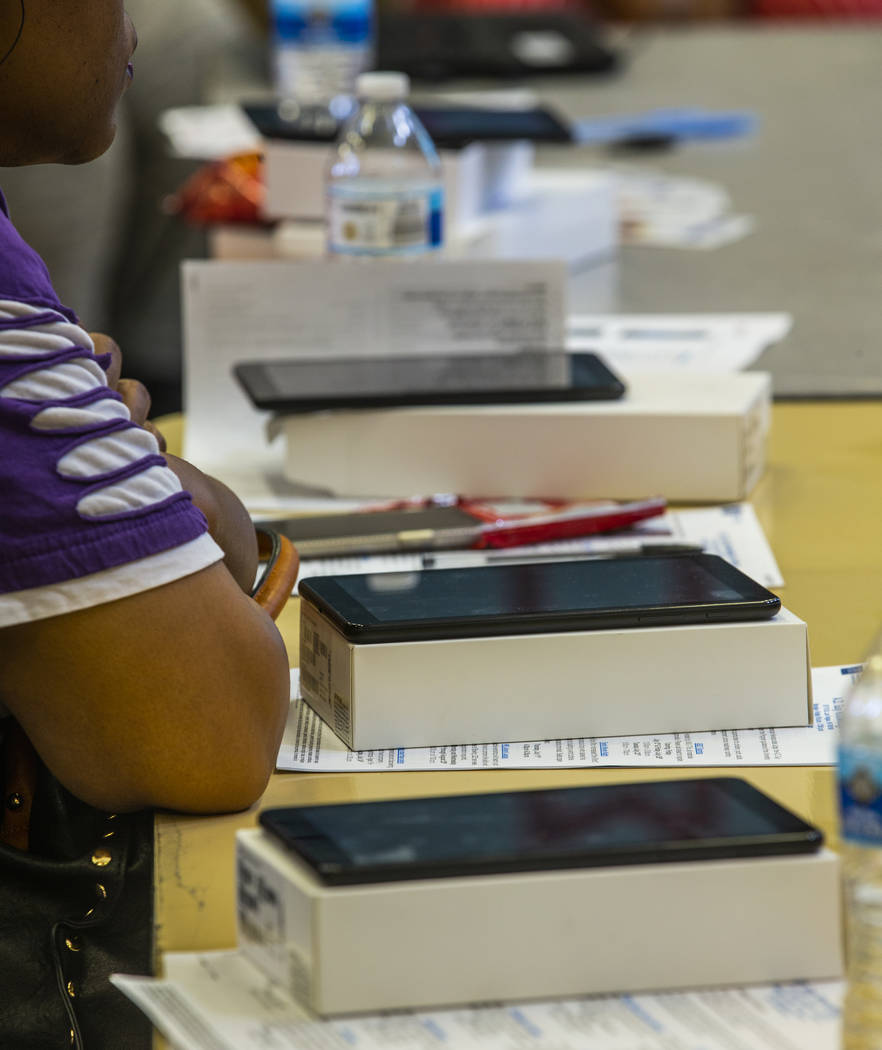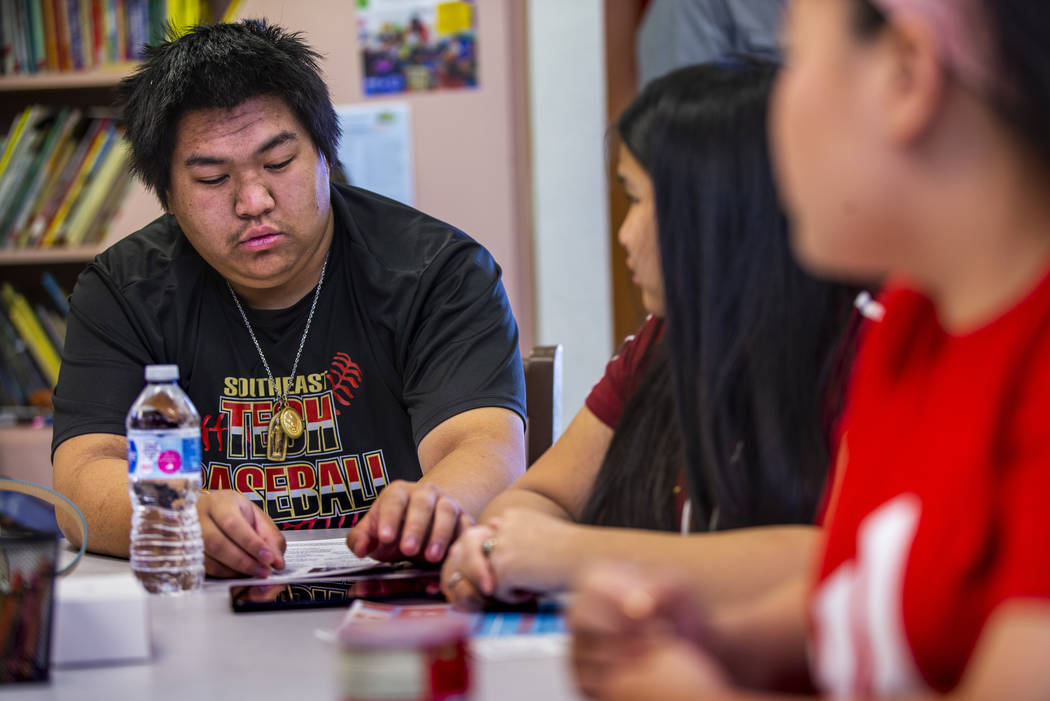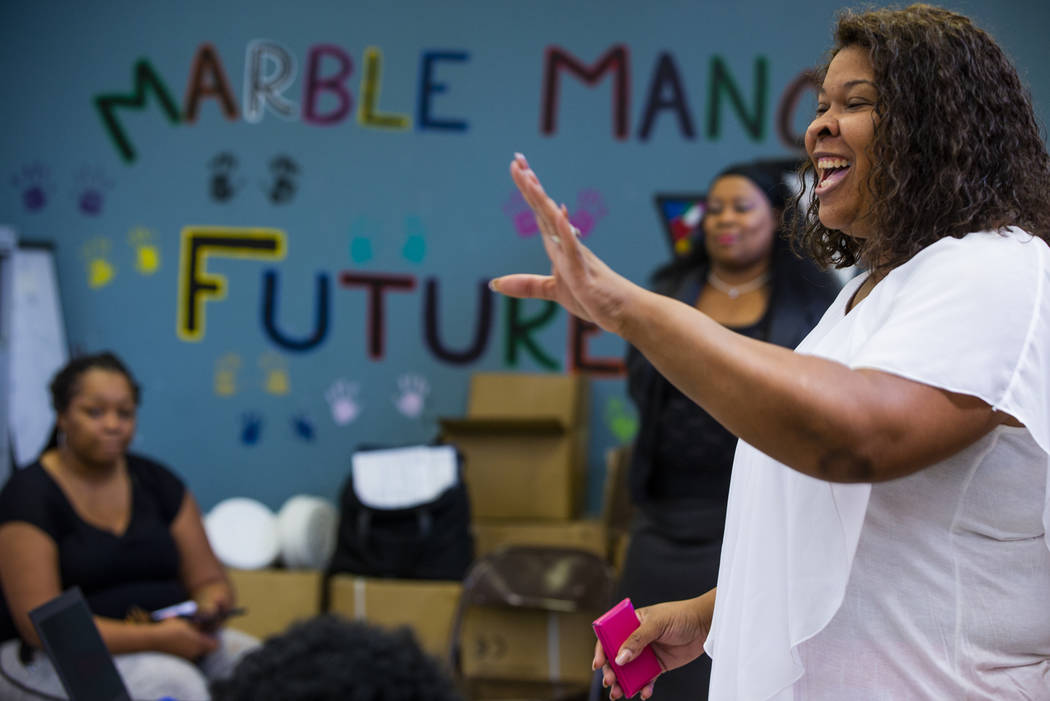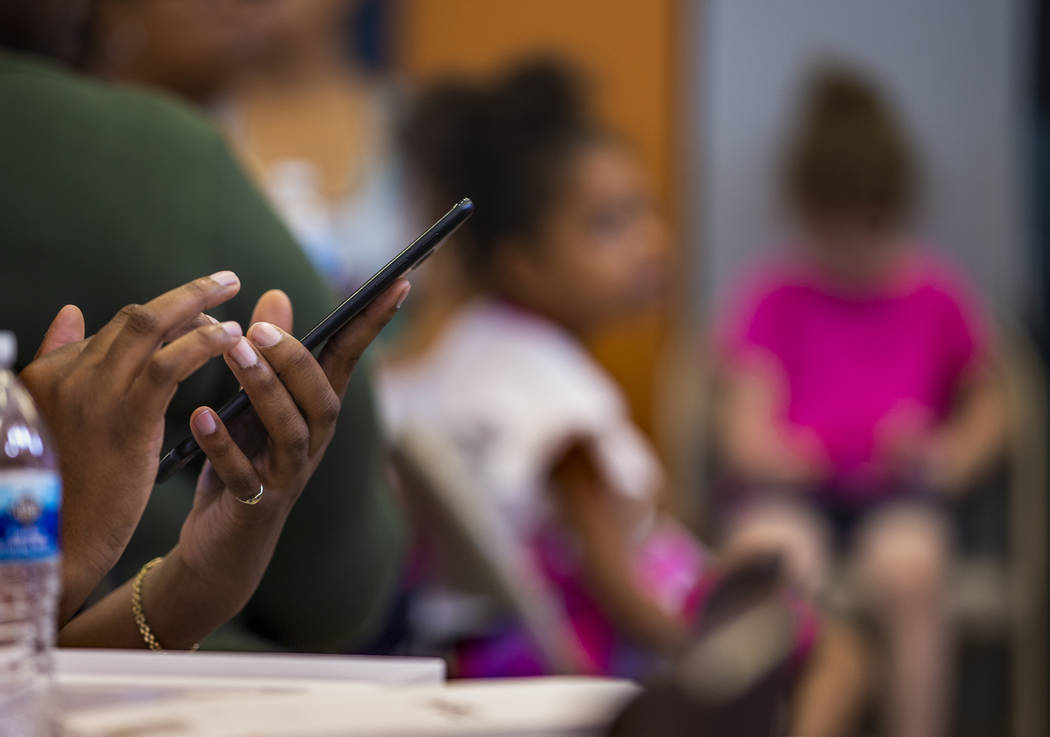Las Vegas program bridges digital divide in public housing
Seventeen-year-old Mark majors in information technology and dreams of owning a business. His sister Lena, two years his junior, is studying culinary arts. A third sibling, Jenna, the youngest of the family, has been learning about sports leadership and management.
For each child, the availability of basic technology outside school is instrumental to success in homework and studying. Until recently, the Lacksanamyxay clan of five lacked home access to the internet and a device to connect to it, but the financially struggling family faced an even more dire concern: They had been living out of their car for nearly a year.
“It’s pretty hard and with our situation, that we were homeless, was even harder on us,” Mark Lacksanamyxay said in a recent interview.
The family found a place to live in North Las Vegas recently through the Southern Nevada Regional Housing Authority. While that represented a step forward, there were residual impacts from months of instability. For instance, Lena must complete summer school to make up for two failed courses.
“I feel really bad to see my children go through that,” said Bounma Lacksanamyxay, Mark and Lena’s father. “I’m trying to help them to get better education, so they can get older and support themselves.”
Even with a roof over their heads again, the Lacksanamyxays were confronted with a lack of technology at home. On June 22, they were presented with a solution: a tablet, two years of Wi-Fi and digital literacy training — all for free.
Pilot program
The digital divide disproportionately hurts low-income earners, so Las Vegas officials have teamed up with the housing authority to help a particularly vulnerable population: People living in public housing.
About one in 10 households do not have a computer or smartphone in Clark County, and about one in five have no internet subscription, according to U.S. Census data. But the housing authority says the figure is bleaker in public housing, where more than 70 percent of residents do not have technology or Wi-Fi in their homes.
“We’re at a point now in our society that having broadband services and devices are no longer just a luxury,” said Lisa Morris Hibbler, a city director, who oversees the Mayor’s Fund for Las Vegas LIFE.
The fund is the primary city investment vehicle for donors in exchange for charitable contribution tax breaks. Hibbler said the city paid $75,000 to join a pilot program, ConnectHomeUSA, that offers devices to families, covers two years of high-speed internet access and offers training on pre-installed apps for job and school resources.
“We realize that sometimes transportation is a barrier, and so nowadays even to apply for a job you have to have internet or access to technology,” said Bonita Fahy, Southern Nevada director of the One-Stop Career Center, which provides training on a job resource app called EmployNV.
Las Vegas is one of just 30 U.S. communities chosen to participate in ConnectHomeUSA. Thus far, more than 150 free computer devices have been delivered to families in public housing through the program.
The city hopes to ultimately expand the program to 2,000 families in public housing, estimating it will cost nearly $600,000 in private support.
“It’s important to make sure that we bridge that digital divide and connect residents to the same opportunities that rich, privileged, affluent kids … get,” said housing authority Executive Director Chad Williams. “The disconnect is racist, discriminatory and marginalized, and it just shouldn’t be happening.”
Putting technology to use
Mark Lacksanamyxay said he and his siblings will likely first use the tablet to set up school portal accounts. Lena, 15, will be able to complete summer school. Mark, who is part of a bowling intramural league, also suggested the tablet will allow him to keep tabs on practice times.
Britiney Cisneros, the Lacksanamyxays’ housing authority case manager, said ConnectHomeUSA is ideal for families like them because they live miles from the nearest computer lab or library.
Cisneros identified the Lacksanamyxays as candidates for the program even though their new home is outside the 89106 ZIP code, where the first deliveries have been focused. However, their situation prompted the exception.
“For sure for this family, because the kids have to do everything on the computer and there’s no resource for them,” she said.
Mark recalled staying after school for two hours sometimes to use a computer. He and his sisters would also walk long distances or use city buses to reach the nearest library if their parents could not drop them off, assuming their car was working.
Bounma Lacksanamyxay, and his wife, Aylee, have dealt with major health issues, making it virtually impossible for them to work and leaving them reliant on social assistance. Around 2011, the patriarch was left completely disabled after what the family described as a botched brain surgery.
“It’s like a horror story that you hear,” Aylee Lacksanamyxay said.
At the time, he was nearly finished with training to become a FedEx home delivery independent contractor. In more recent years, Aylee Lacksanamyxay suffered a heart attack and suffers from anxiety and diabetes.
Despite the setbacks, they are looking optimistically into the future.
“I want to show them that if you set your mind and work hard at something, at least they know that we can get somewhere in life, not depending on asking for help for this and that,” Bounma Lacksanamyxay said.
NOTE: An earlier version of this story gave an incorrect title for Lisa Morris Hibbler.
Contact Shea Johnson at sjohnson@reviewjournal.com or 702-383-0272. Follow @Shea_LVRJ on Twitter.



